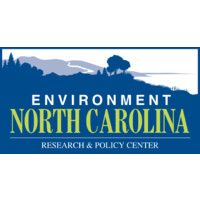Company Details
buckeye-institute-for-public-policy-solutions
15
713
921
buckeyeinstitute.org
0
THE_1375319
In-progress

The Buckeye Institute Company CyberSecurity Posture
buckeyeinstitute.orgFounded in 1989, The Buckeye Institute is an independent research and educational institution—a think tank—whose mission is to advance free-market public policy in the states. The staff at Buckeye accomplish the organization’s mission by performing timely and reliable research on key issues, compiling and synthesizing data, formulating sound free-market policies, and promoting those solutions for implementation in Ohio and replication across the country. The Buckeye Institute is located directly across the street from the Ohio Statehouse on Capitol Square in Columbus, where it assists legislative and executive branch policymakers by providing ideas, research, and data to enable the lawmakers’ effectiveness in advocating free-market public policy solutions. The Buckeye Institute is a non-partisan, non-profit, and tax-exempt organization, as defined by section 501(c)(3) of the Internal Revenue code. As such, it relies on support from individuals, corporations, and foundations that share a commitment to individual liberty, free enterprise, personal responsibility, and limited government. The Buckeye Institute does not seek or accept government funding.
Company Details
buckeye-institute-for-public-policy-solutions
15
713
921
buckeyeinstitute.org
0
THE_1375319
In-progress
Between 700 and 749

 BI Global Score (TPRM)
BI Global Score (TPRM)XXXX



No incidents recorded for The Buckeye Institute in 2025.
No incidents recorded for The Buckeye Institute in 2025.
No incidents recorded for The Buckeye Institute in 2025.
BI cyber incidents detection timeline including parent company and subsidiaries

Founded in 1989, The Buckeye Institute is an independent research and educational institution—a think tank—whose mission is to advance free-market public policy in the states. The staff at Buckeye accomplish the organization’s mission by performing timely and reliable research on key issues, compiling and synthesizing data, formulating sound free-market policies, and promoting those solutions for implementation in Ohio and replication across the country. The Buckeye Institute is located directly across the street from the Ohio Statehouse on Capitol Square in Columbus, where it assists legislative and executive branch policymakers by providing ideas, research, and data to enable the lawmakers’ effectiveness in advocating free-market public policy solutions. The Buckeye Institute is a non-partisan, non-profit, and tax-exempt organization, as defined by section 501(c)(3) of the Internal Revenue code. As such, it relies on support from individuals, corporations, and foundations that share a commitment to individual liberty, free enterprise, personal responsibility, and limited government. The Buckeye Institute does not seek or accept government funding.


Women in Informal Employment: Globalizing and Organizing (WIEGO) is a global action-research-policy network that seeks to improve the status of the working poor in the informal economy, especially women. WIEGO is comprised of organizations of informal workers and of individual researchers and dev

Environment North Carolina is a citizen-based environmental advocacy organization and a project of Environment America. We believe there’s something special about North Carolina — something worth protecting and preserving for future generations. Whether it's watching for sea turtles at Cape Hatteras

Action Canada is a national fellowship program for promising young Canadians. The program enhances Fellows' leadership skills, broadens their understanding of Canada and its policy choices, and builds an exceptional network of leaders for our future. If you are an emerging leader or know someone

Missouri Coalition for the Environment (MCE) is Missouri’s independent, citizens' environmental organization for clean water, clean air, clean energy, and a healthy environment. With the help of our members and allies we are making the world a better place. We believe our air, water, and land are g

The Renewable Natural Resources Foundation (RNRF) is an I.R.C. §501(c)(3) nonprofit, public policy research organization founded in 1972. It is a consortium of scientific, professional, educational, design and engineering organizations whose primary purpose is to advance science, the application of

The Center for Growth and Opportunity at Utah State University explores the scientific foundations of the interaction between individuals, business, and government to improve well-being for individuals and society. Our focus is on producing research and impactful learning experiences that allow us t
.png)
(The Center Square) – A judge forced the city of Cleveland to pay the maximum amount in damages for refusing to turn over public records to...
Baldwin Wallace University: Students from Medina County were among 80 transfer students welcomed to the Baldwin Wallace University campus...
Hosting simulated computer assaults - and helping Ohio's cyber reservists work together, face-to-face - is part of the Cyber Range's...
Doug Badger was a senior research fellow in the Center for Health and Welfare Policy at The Heritage Foundation. Medicaid and other welfare...

Explore insights on cybersecurity incidents, risk posture, and Rankiteo's assessments.
The official website of The Buckeye Institute is http://www.buckeyeinstitute.org.
According to Rankiteo, The Buckeye Institute’s AI-generated cybersecurity score is 743, reflecting their Moderate security posture.
According to Rankiteo, The Buckeye Institute currently holds 0 security badges, indicating that no recognized compliance certifications are currently verified for the organization.
According to Rankiteo, The Buckeye Institute is not certified under SOC 2 Type 1.
According to Rankiteo, The Buckeye Institute does not hold a SOC 2 Type 2 certification.
According to Rankiteo, The Buckeye Institute is not listed as GDPR compliant.
According to Rankiteo, The Buckeye Institute does not currently maintain PCI DSS compliance.
According to Rankiteo, The Buckeye Institute is not compliant with HIPAA regulations.
According to Rankiteo,The Buckeye Institute is not certified under ISO 27001, indicating the absence of a formally recognized information security management framework.
The Buckeye Institute operates primarily in the Public Policy Offices industry.
The Buckeye Institute employs approximately 15 people worldwide.
The Buckeye Institute presently has no subsidiaries across any sectors.
The Buckeye Institute’s official LinkedIn profile has approximately 713 followers.
No, The Buckeye Institute does not have a profile on Crunchbase.
Yes, The Buckeye Institute maintains an official LinkedIn profile, which is actively utilized for branding and talent engagement, which can be accessed here: https://www.linkedin.com/company/buckeye-institute-for-public-policy-solutions.
As of November 28, 2025, Rankiteo reports that The Buckeye Institute has not experienced any cybersecurity incidents.
The Buckeye Institute has an estimated 1,024 peer or competitor companies worldwide.
Total Incidents: According to Rankiteo, The Buckeye Institute has faced 0 incidents in the past.
Incident Types: The types of cybersecurity incidents that have occurred include .
.png)
Angular is a development platform for building mobile and desktop web applications using TypeScript/JavaScript and other languages. Prior to versions 19.2.16, 20.3.14, and 21.0.1, there is a XSRF token leakage via protocol-relative URLs in angular HTTP clients. The vulnerability is a Credential Leak by App Logic that leads to the unauthorized disclosure of the Cross-Site Request Forgery (XSRF) token to an attacker-controlled domain. Angular's HttpClient has a built-in XSRF protection mechanism that works by checking if a request URL starts with a protocol (http:// or https://) to determine if it is cross-origin. If the URL starts with protocol-relative URL (//), it is incorrectly treated as a same-origin request, and the XSRF token is automatically added to the X-XSRF-TOKEN header. This issue has been patched in versions 19.2.16, 20.3.14, and 21.0.1. A workaround for this issue involves avoiding using protocol-relative URLs (URLs starting with //) in HttpClient requests. All backend communication URLs should be hardcoded as relative paths (starting with a single /) or fully qualified, trusted absolute URLs.
Forge (also called `node-forge`) is a native implementation of Transport Layer Security in JavaScript. An Uncontrolled Recursion vulnerability in node-forge versions 1.3.1 and below enables remote, unauthenticated attackers to craft deep ASN.1 structures that trigger unbounded recursive parsing. This leads to a Denial-of-Service (DoS) via stack exhaustion when parsing untrusted DER inputs. This issue has been patched in version 1.3.2.
Forge (also called `node-forge`) is a native implementation of Transport Layer Security in JavaScript. An Integer Overflow vulnerability in node-forge versions 1.3.1 and below enables remote, unauthenticated attackers to craft ASN.1 structures containing OIDs with oversized arcs. These arcs may be decoded as smaller, trusted OIDs due to 32-bit bitwise truncation, enabling the bypass of downstream OID-based security decisions. This issue has been patched in version 1.3.2.
Suricata is a network IDS, IPS and NSM engine developed by the OISF (Open Information Security Foundation) and the Suricata community. Prior to versions 7.0.13 and 8.0.2, working with large buffers in Lua scripts can lead to a stack overflow. Users of Lua rules and output scripts may be affected when working with large buffers. This includes a rule passing a large buffer to a Lua script. This issue has been patched in versions 7.0.13 and 8.0.2. A workaround for this issue involves disabling Lua rules and output scripts, or making sure limits, such as stream.depth.reassembly and HTTP response body limits (response-body-limit), are set to less than half the stack size.
Suricata is a network IDS, IPS and NSM engine developed by the OISF (Open Information Security Foundation) and the Suricata community. In versions from 8.0.0 to before 8.0.2, a NULL dereference can occur when the entropy keyword is used in conjunction with base64_data. This issue has been patched in version 8.0.2. A workaround involves disabling rules that use entropy in conjunction with base64_data.

Get company history
















Every week, Rankiteo analyzes billions of signals to give organizations a sharper, faster view of emerging risks. With deeper, more actionable intelligence at their fingertips, security teams can outpace threat actors, respond instantly to Zero-Day attacks, and dramatically shrink their risk exposure window.
Identify exposed access points, detect misconfigured SSL certificates, and uncover vulnerabilities across the network infrastructure.
Gain visibility into the software components used within an organization to detect vulnerabilities, manage risk, and ensure supply chain security.
Monitor and manage all IT assets and their configurations to ensure accurate, real-time visibility across the company's technology environment.
Leverage real-time insights on active threats, malware campaigns, and emerging vulnerabilities to proactively defend against evolving cyberattacks.




